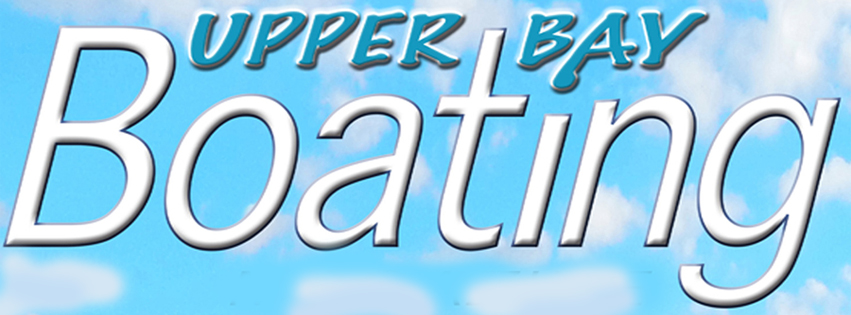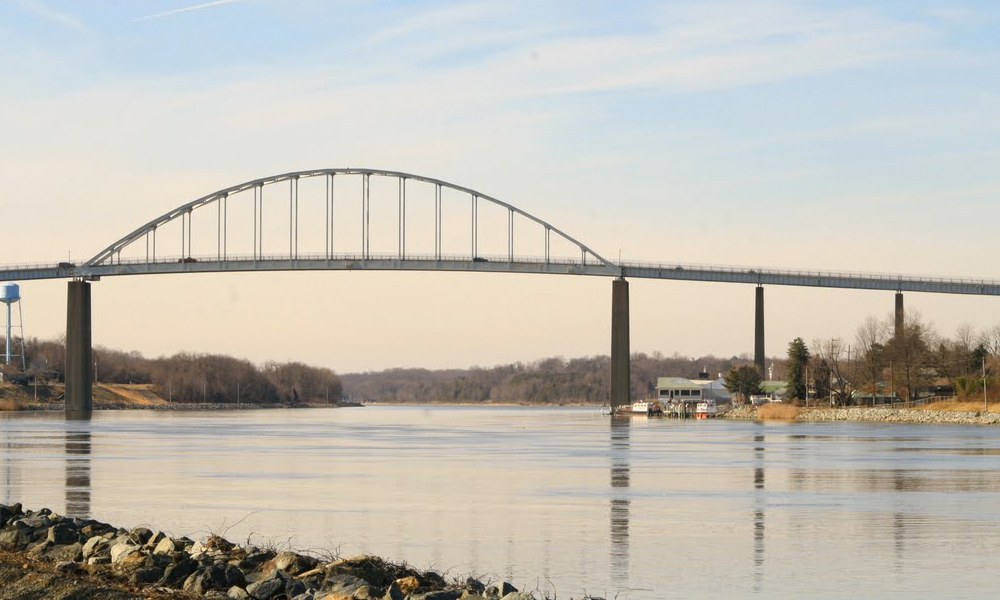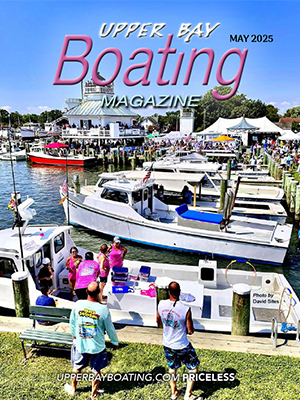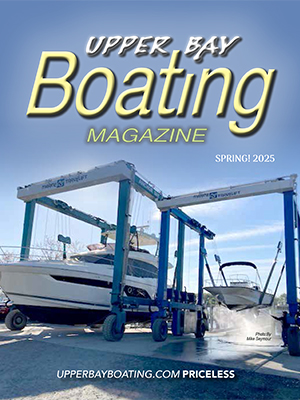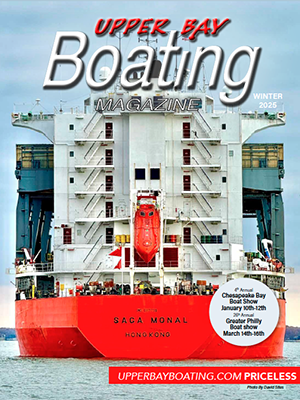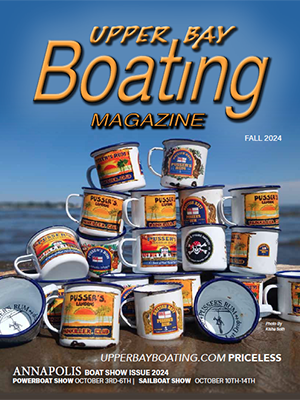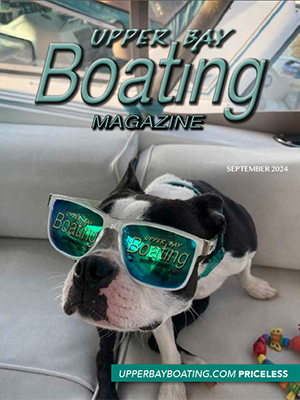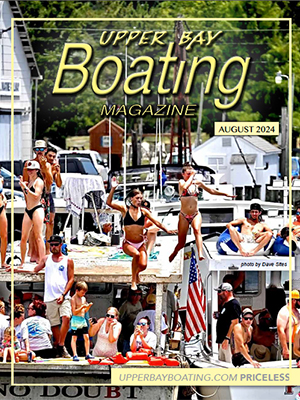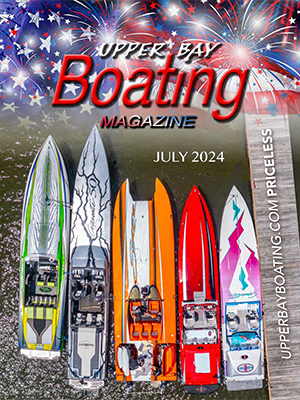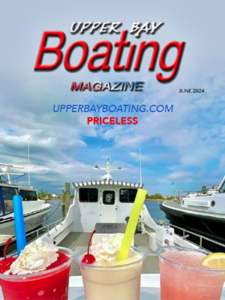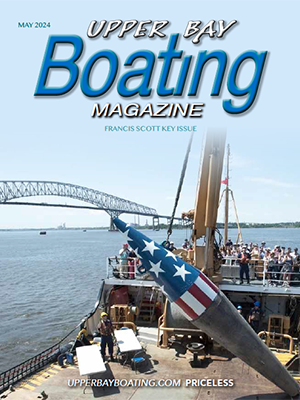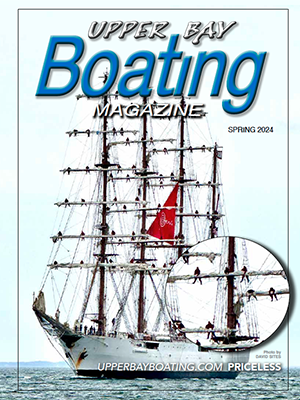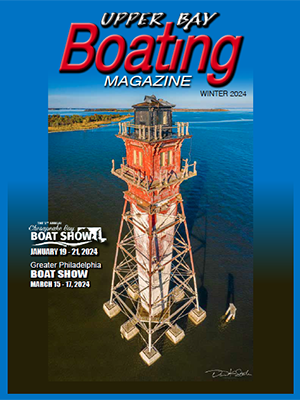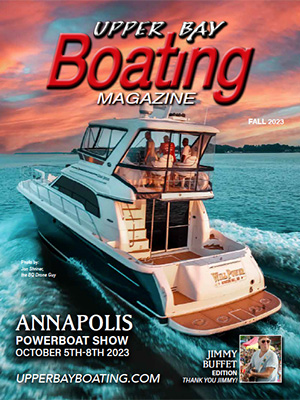Welcome to PA Boating
Confessions of a Pennsylvania Boater
by Dick Greenwood
I’d like to tell you this article will contain salacious details and narratives that include lots of gory details and animated activity, but that would be a lie. I just needed a title, and “confessions” always draw my attention, so I thought they might pull you in. Well, I guess it worked since you’re here.
In a way, though, I do have a confession to make: When I first bought my boat, I was totally clueless, particularly about what it meant to live in Pennsylvania and boat on the Chesapeake. Going back to the beginning, it’s hard to believe that I ever made the decision to take up the sport in the first place. Ah, I remember now. Lacking anything else to do, my wife and I drove down to Havre de Grace one sunny summer day to have lunch. While we sat at a table at the Tidewater Grille—There’s that extra vowel again. “Grille” not “Grill,” “harbour” not “harbor.” What is with us Americans that drives us to brutalize our language like that?—and we watched the boats flitting back and forth.
“I’ve always wanted a boat,” I confessed to my wife of 20+ years.
With that simple sentence my fate was sealed, and the rest is history. At the time we were living in Bryn Mawr, right outside of Philadelphia. Within two months we owned a boat that we found at a dealership in Allentown, Pennsylvania. Within six months, most of the events occurring within that first two months, we had identified a place to keep the boat, made friends through the Coast Guard Auxiliary, and become deeply engaged in the boating life.
More important, however, were the lessons we learned during the first full year of being boaters. It’s those lessons I’m focusing on today. You may think some of them are pretty lame; you may be surprised by some. But all of them reflect “ah-hahs” we had during our first year. Here we go:
Lesson number 1: It’s worth the drive, so don’t get discouraged when Friday arrives and you’re facing another outing to the Bay. After a year, we moved to a place that’s an hour closer to the Bay, but it was for a combination of reasons. Being closer was a fringe benefit of our move, not the prime motivator.
Lesson number 2: Don’t get so dependent on your GPS that you get duped into driving by a route that’s less accommodating or attractive than others. Experiment. Ask other Pennsylvania boaters how they come. I, for example, don’t like riding on I-95 on a Friday afternoon, so I much prefer other highways. Keep an open mind until you’ve exhausted all the possibilities.
For reasons I’m not sure I can even explain, I drive down and back using different routes. I just like one way northbound more than the other way, the one I use only for southbound travel. Part of it—and this will show you how solid the ground is upon which I make my decisions—is that I like to stop at a little store in Landenburg, Pennsylvania, where they sell killer good chocolate-coated popcorn. But I don’t want to buy it on the way to the boat, only on the way home.
Lesson number 3: Pick your marina on the basis of how close it is to your favorite boating spots and boating people, not on the basis of how close it is to your home. Our first marina was great. It was only an hour-and-a-half from our home, had all the amenities, and our slip was nicely situated. The only problem was that we soon learned the people we wanted to boat with were in the Rock Hall area, about a two-hour run from our marina.
Do the math. We were probably running the boat 60 miles each way to meet up with our friends. We’d get to their marina, pay for a guest slip, and then cruise the 60 miles back. At roughly 1-mile per gallon, each gallon costing around $5, we were burning $600 worth of gas to visit our friends. If, however, we moved down to Rock Hall, we’d have 60-miles of extra driving; but it would be at 20-miles per gallon, with the gas costing around $3 per gallon. In other words, we would burn $18 worth of gas, for a savings of $582. I’m not going to belabor the point that we much preferred Kent Narrows to (you put in a north-bay destination, we never found one that equaled Kent Narrows) anywhere up north.
Lesson number 4: If you live in Pennsylvania but boat in Maryland, buy your car’s gas in Maryland. It’s a lot cheaper. I got in the habit of running my car’s tank down to about a quarter full and making my trip down. By the time I got to my boat and half-way home, I’d need gas and would always find it somewhere around 50¢ less than Pennsylvania prices. Over the span of a summer, that can add up to a nice savings. Probably more than enough to take the family out for dinner and ice cream.
Lesson number 5: While we’re saving money, keep in mind that Delaware has no sales tax, so those snacks & food, kitchen utensils and other paraphernalia that you need should be picked up on your way to the boat. I know 6% isn’t a ton of money, but $500 reduced by 6% is $470, and that $30 can buy you 6 gallons of gas or 10 ice cream cones.
Lesson number 6: Last but not least, make your life easier by picking up a couple of boat bags—I’d buy them in Delaware if I were you.—and leave them by the back door. Then, as the week goes by, you can use them to hold those things you want to bring down to the boat on the weekend. I don’t know how many times Joan looked at me, knowing the answer, and asked “Did you remember to bring the [insert anything you have at home that you want on your boat]?” I’d invariably look ashamed, try for an excuse, and end up having earned her scorn. The boat bags eliminate this problem. Now I only have to worry when I can’t come up with the right answer to the question, “Did you remember to bring the boat bags?”
